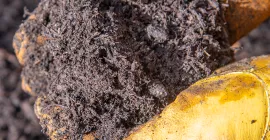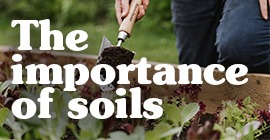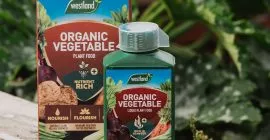Improving your soil means you’re ahead of the game come planting time. There are several things you can do to improve your soil and make your garden flourish this season.
It is essential to improve your soil regularly by digging in organic matter. These natural materials will absorb and hold water in the soil and improve its structure, providing essential air pockets for drainage and for the roots to breathe.
The high organic content also encourages the activity of worms, which are vital for soil health.
What is soil?
Because soil is not just soil – it’s as alive as your plants, bustling and thriving with organic life. It’s rich in organic matter to support life in the soil, meaning all your plants flourish.
Soil is a mixture of minerals, of both dead and living organisms, as well as air and water in varying proportions. Their four ingredients interact with each other in truly amazing ways, making soil one of our planet’s most dynamic and important natural resources.
Did you know there is more living organisms in just a handful of soil than people on this planet?
Healthy soil is 45% mineral (soil solids), 25% air (soil pore spaces), 25% water and 5% organic matter.
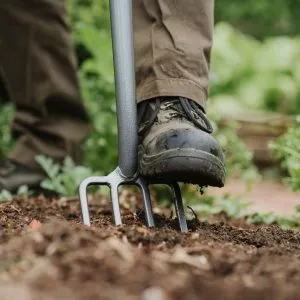
Methods for how to improve your soil
Digging and forking through soil allows you to loosen any compaction, as well as remove weeds and debris. It also provides the perfect opportunity to add the organic matter.
Plants need good soil conditions if they are to give their best results. Improving the soil with plenty of organic matter in the form of compost helps drainage. It also helps with aeration on heavy soils and even conserves essential moisture on light ones.
Mulching Your Soil
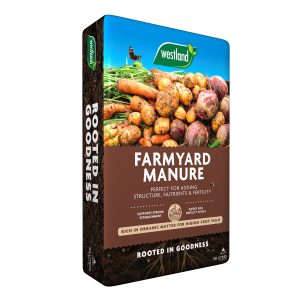
Using a Soil Improver
Westland Soil Improver is the perfect blend of manures and bark to revitalise your garden soil. This enriched mix enhances soil structure, fertility, and drainage, creating a solid foundation for healthy, vibrant plants.Mix this into your soil when planting roses, shrubs or trees, work into the top 15/20cm of your soil to improve the fertility or layer it 3-4cm deep over the top of your existing soil.
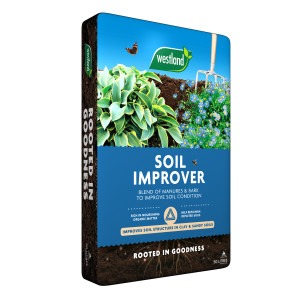
Improving Sandy Soils
This soil needs a lot of organic matter. To truly improve this light sandy soil, adding this matter will help to bind the soil particles together and therefore improve both water and nutrient retention. This job should be done in spring and autumn.
Improving Silt Soils
This soil type is at the most risk of compaction, so it really needs organic matter adding yearly. This will help to improve the structure. Adding a 5 -10 cm layer of organic matter and then working it in with a fork in the early spring or summer is best.
Improving Clay Soils
How to Improve Your Soil
Follow the steps below to improve the nutrient levels and help your plants bloom!
Step 1:
Dig over the area of soil that needs improving. Break up any large clumps of soil to relieve the compaction. We recommend using a Digging Spade for any areas that have not previously been dug. If the soil has been cultivated previously then soil can be forked through with the tines of a Digging Fork.
Step 2:
Spread Westland Soil Improver or Westland Farmyard Manure over the surface of the dug area and work it into the soil with a fork. As a general rule add a minimum of a 5cm later of the conditioner or manure over the surface before digging or forking in.
If the area is planted then take care not to dig close to the plants or disturb their roots. Alternatively, use Westland Soil Improver, or Westland Farmyard Manure as a mulch applied around established plants and allow worms and soil organisms to work it into the soil.
Step 3:
Dig over the soil deeply again to really mix in the organic matter to the depth of the spade or fork tines.
Step 4:
Tread in the area, using the heels of your wellies to firm in the soil. If any large clumps remain then break them up with the back of a fork.
Step 5:
Finally, rake over the soil with a Soil Rake to remove any stones or left over weeds. It also helps to create an even layer prime and ready for planting.


